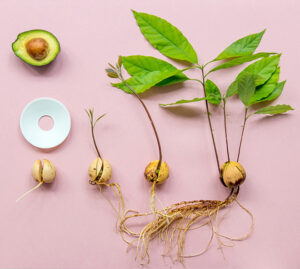How Long Do Seeds Take to Grow: A Complete Guide to Germination

Seeds generally take varying amounts of time to grow, depending on the specific type of seed being planted. However, on average, seeds can take anywhere from a few days to several weeks to sprout and grow into healthy plants.
Factors Affecting Seed Germination
Factors affecting seed germination, such as temperature, moisture, and light, can determine how long it takes for seeds to grow. These conditions vary for different types of seeds, but with proper care and optimal conditions, seeds can typically sprout within a few days to a couple of weeks.
Temperature And Light Conditions
Temperature and light conditions play a crucial role in seed germination. Each plant species has its optimal temperature range for germination. Some seeds prefer cooler temperatures, while others require warmer conditions. Light is another critical factor, as some seeds require light to germinate, while others need darkness. It is important to provide the seeds with the right balance of temperature and light conditions for successful germination.
Moisture And Water Availability
Moisture and water availability are essential for seed germination. Adequate moisture is required to activate enzymes that initiate germination. Seeds that are too dry may fail to germinate. On the other hand, excessive moisture can lead to rotting before germination can occur. It is important to provide the seeds with the right amount of moisture and ensure proper drainage to promote successful germination.
Seed Quality And Viability
The quality and viability of the seeds also play a crucial role in germination. Fresh seeds that are viable have a higher chance of germination compared to old or damaged seeds. It is essential to select high-quality seeds from reliable sources to increase the chances of successful germination.

Credit: www.botanopia.com
Germination Process Of Seeds
When it comes to the germination process of seeds, there are several stages involved. The first stage is seed hydration and activation, where the seed absorbs water and starts to activate its metabolic processes. This is followed by testa rupture and radicle emergence, where the seed coat breaks open and the primary root emerges. Next, shoot development and seedling growth occur, where the shoot begins to grow and leaves develop.
Seed germination time can vary depending on the type of seed and environmental conditions. Some seeds may germinate within a few days, while others may take weeks or even months. It is important to provide the right conditions for germination, including proper moisture levels, temperature, and light.
In conclusion, the germination process of seeds involves seed hydration and activation, testa rupture and radicle emergence, and shoot development and seedling growth. The time it takes for seeds to germinate can vary, so it is important to be patient and provide the necessary conditions for successful germination.
Germination Time For Different Types Of Seeds
Germination time varies for different types of seeds. Some seeds have a short germination time, such as lettuce and radish, which typically sprout within a few days to a week. On the other hand, seeds such as tomato and cucumber have a moderate germination time, usually taking around 7-14 days to sprout. Carrots and peppers, on the other hand, have a longer germination time and can take anywhere from 14-21 days to sprout.
It’s important to note that germination time can also be influenced by factors such as temperature, moisture, and soil conditions. Additionally, some wild seeds may have a fixed germination time, such as seven days, regardless of the specific type of seed.
To ensure successful germination, it is recommended to follow proper seed germination techniques, such as providing the right amount of moisture and warmth for the seeds. Starting seeds indoors with grow lights can also help speed up the germination process. Properly planting the seeds at the right depth in pots or directly in the soil is also crucial for successful germination.
In conclusion, the germination time for seeds can vary depending on the specific type of seed and environmental conditions. Understanding the typical germination time for different seeds can help gardeners plan their planting and harvesting schedules accordingly.
Frequently Asked Questions Of How Long Do Seeds Take To Grow
How Long Do Seeds Take To Sprout?
Seeds usually take around 1-2 weeks to sprout, but this can vary depending on the type of seed. It’s best to follow specific instructions for each seed variety.
How Long Does It Take For A Seed To Fully Grow?
Seeds typically take varying amounts of time to fully grow, depending on the plant species. It can range from a few days to several weeks. Proper care and conditions, such as sunlight, water, and temperature, help accelerate the germination process.
Can Seeds Germinate In 3 Days?
Seeds can germinate in as little as 3 days.
How Long To Start Seeds Indoors?
Seeds can take different amounts of time to sprout and germinate, depending on the type of seed. In general, seeds can take anywhere from a few days to a few weeks to start growing. To start seeds indoors, it is best to follow the instructions on the seed packet or consult a gardening guide for specific information on each plant type.
Conclusion
Seeds can take varying amounts of time to grow, depending on the type of plant. Some seeds can germinate within a few days, while others may take weeks or even months. It is important to read the seed packet or do some research to determine the specific germination time for the seeds you are planting.
Factors such as temperature, moisture, and light can also affect the germination process. Patience is key when waiting for seeds to grow, so be sure to provide the necessary care and conditions for optimal growth. Happy gardening!









